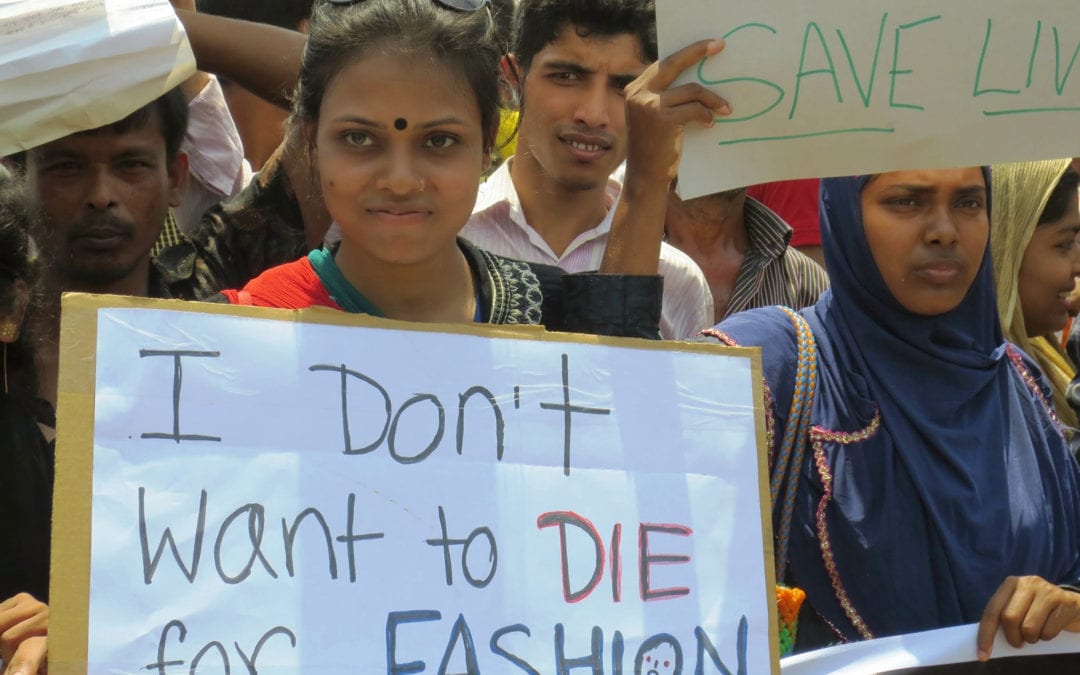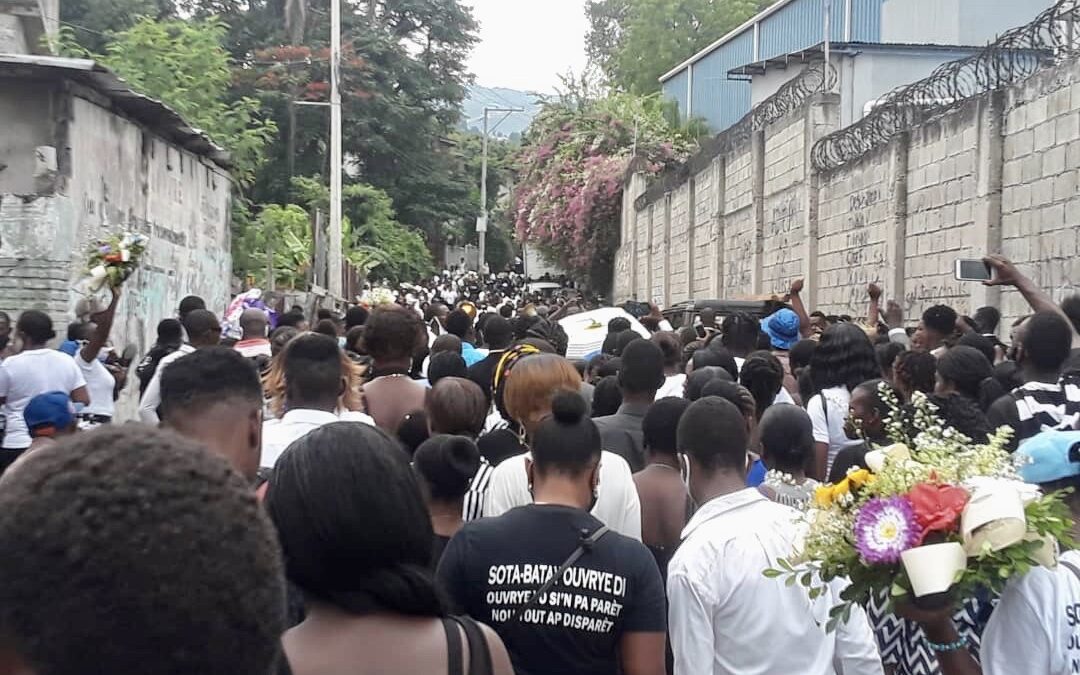
Bangladesh Garment Worker Dies in Rally for Unpaid Wages
Jesmin Begum, a Bangladesh garment worker in her early 30s, died as she and hundreds of others rallied for unpaid wages in one of Dhaka’s Export Processing Zones (EPZs).
A sewing operator, Begum was laid off in January from Lenny Fashion, Ltd., after the factory closed. Although management said it would pay unpaid wages by May, the company never fulfilled its commitment, and workers gathered at the Nabinagar-Chandra highway outside the EPZ June 13 to demand payment.
When the workers at Lenny Fashion Ltd. and another factory that was closed by the same company refused to move from the road after two hours, the police used tear gas, rubber bullets and water cannons to disperse them, and Begum died after she fell fleeing the police violence. Dozens of workers also were injured.
“We are always told that in EPZ factories, BEPZA [Bangladesh Export Processing Zones Authority] enforces workers’ rights properly and vigorously, but BEPZA, as in many other previous cases, has miserably failed here that led to the workers’ protest and death of Jesmin,” says Babul Akhter, president of the Bangladesh Garment and Industrial Workers’ Federation (BGIWF)
Worker Rights Abused, EPZs Make Billions
Bangladesh’s eight EPZs received $333.38 million in foreign direct investment and made $7.52 billion from exports in the 2018–2019 fiscal year. Yet Bangladesh workers in EPZs face daunting odds in trying to redress often poor and dangerous factory safety and health conditions, retrieve unpaid wages or end abusive treatment by supervisors because the zones are exempt from the country’s labor laws and workers are prohibited from forming unions.
As a result, they are particularly vulnerable to worker rights abuses. Although they are allowed to organize and form workers welfare associations (WWAs) at their factories, the WWAs do not have the same rights as unions. The ILO Committee of Experts has identified numerous provisions in the WWAs that violate ILO Conventions 87 and 98 on the freedom to form unions an bargain collectively.
The terms and conditions of service for EPZ workers are regulated by BEPZA, essentially eliminating collective bargaining. Labor inspectors are not permitted to inspect factories in the zones and, unlike workers covered under the nation’s labor laws, workers in EPZs do not have the legal right to file a case challenging illegal termination.
In addition, says Akhter, “BEPZA and the employers are systematically dissolving the worker welfare associations in EPZ factories to eliminate any kind of voice of the workers in the workplace.”
With Unions, Workers Advocate for Safe Jobs
Although the government of Bangladesh in 2019 amended the EPZ law with the aim of bringing it more in line with its labor laws and international labor standards, the ILO found the new EPZ Law failed to address the vast majority of these concerns. “Importantly, the new law continues to deny EPZ workers the right to form or join a union,” according to the ILO.
“The EPZ workers must be allowed to exercise their rights to join union of their own choosing, removing the discrimination between the EPZ and non-EPZ workers,” Akhter says.
Without the ability to form unions, garment workers cannot collectively push for safety and health improvements at their workplaces. After more than 1,200 garment workers died in two tragic factory disasters in 2012 and 2013, unions have been a key partner with fashion brands in the Accord on Fire and Building Safety in Bangladesh, a landmark agreement that made factories safer for 2 million garment workers. Worker rights advocates are urging extension of the Accord, which expires in three months.
Yet the BEPZA did not allow the Accord to inspect any of the EPZ factories—all the more reason, worker advocates say, garment workers must be able to form union and collectively bargain.

